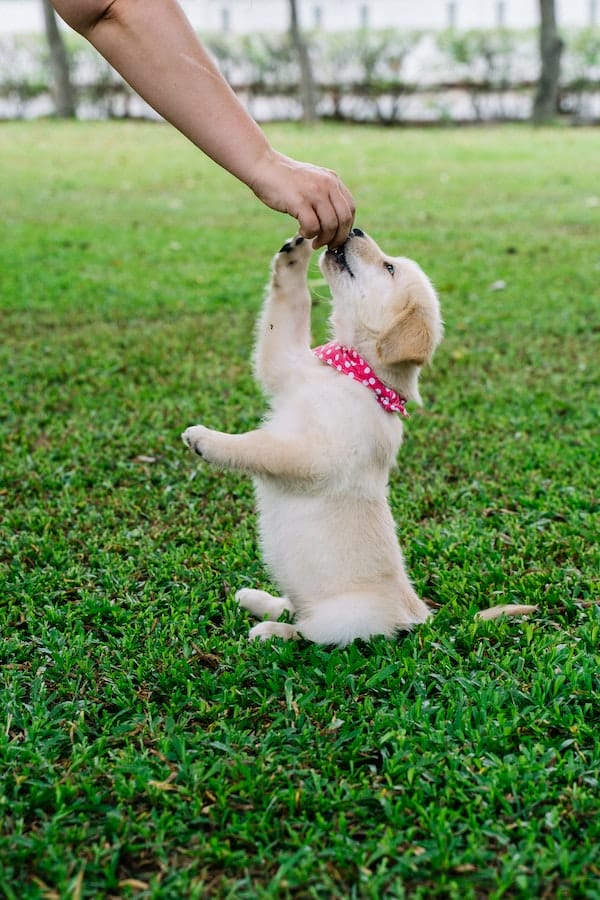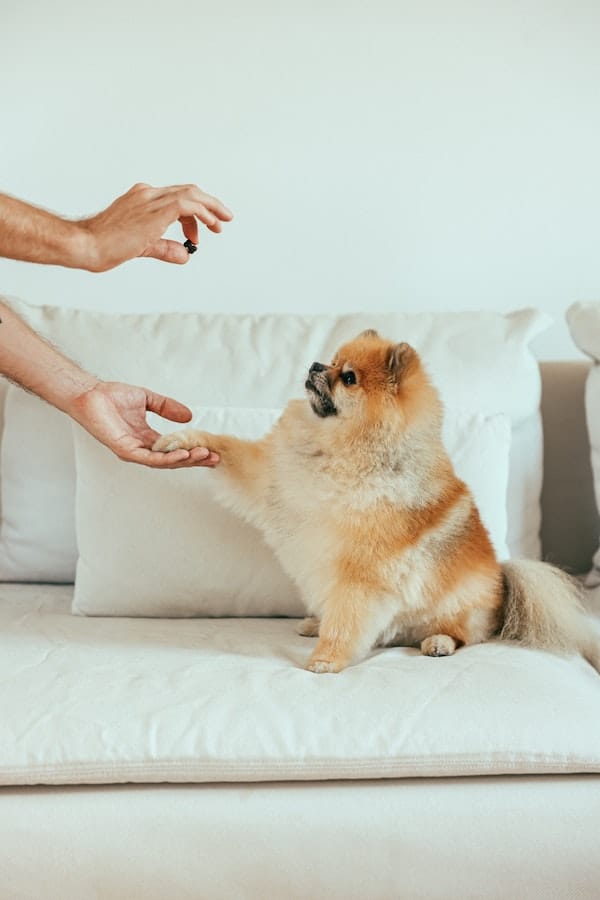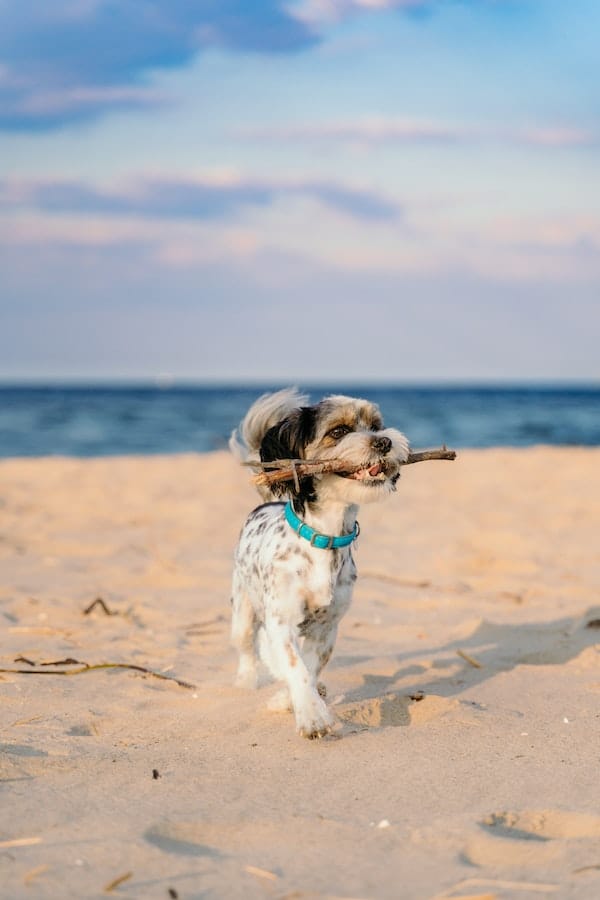
Bringing a new puppy into your home is an exhilarating journey brimming with joy, wagging tails, and boundless energy.
Yet, alongside the irresistible cuteness comes a profound responsibility, and at the core of responsible puppy ownership lies the art of training.
This article embarks on a voyage into the significance of puppy training, offering guidance through the intricacies of when and how to commence the training journey with your furry companion.
From the initial stages of early socialization to the mastery of advanced techniques, we’ve got every aspect covered to ensure you and your four-legged friend embark on a harmonious and fulfilling journey together.
The Importance of Puppy Training
Let’s delve deeper into the importance of puppy training by breaking it down into key points:
Establishing a strong foundation
Puppy training is akin to laying the cornerstone for a harmonious human-canine partnership.
It extends beyond merely teaching tricks; it’s about instilling fundamental obedience and manners that will be the compass guiding your dog throughout their life’s journey.
This robust foundation not only fosters a well-behaved companion but also forms the bedrock for peaceful and joyful coexistence.
Prevention of behavioral issues
The value of proper training is profoundly proactive.
It serves as a shield against a slew of behavioral challenges that can crop up as your puppy matures.
By adhering to a consistent training regimen, you can often quell issues like incessant barking, destructive chewing, and aggression, nipping them in the bud or preventing them altogether.
Encouraging socialization
A vital facet of puppy training involves introducing your pup to various environments, people, and fellow animals.
This exposure lays the groundwork for socialization, instilling adaptability and confidence in your furry companion.
A well-socialized dog is more at ease in diverse settings and less likely to react negatively to new experiences.
Stimulating mental engagement
Training isn’t solely about physical commands; it’s a cognitive workout for your pup.
Mental stimulation through training exercises challenges your dog’s intellect, often exhausting them as much as physical exercise.
A mentally engaged dog is less prone to boredom-induced destructive behaviors, contributing to a happier and more contented pup.

When to Start Training Your Puppy
Let’s dive into the various stages of obedience training that can transform your furry friend into a well-mannered and responsive companion.
Early socialization: the first weeks
The golden window for initiating your puppy’s training is in the earliest weeks of their life.
These initial stages, usually from birth to the first few weeks, represent a pivotal time in your puppy’s development.
During this period, they are like sponges, absorbing new experiences with eagerness.
This is the prime time to commence socialization, a crucial component of their upbringing.
By exposing them to a diverse array of people, animals, and surroundings, you’re nurturing their confidence and reducing the likelihood of fear or anxiety in unfamiliar situations.
Basic puppy training: 8-12 weeks
As your puppy transitions into the 8 to 12-week phase, you’ll find that it’s the perfect juncture to introduce them to basic obedience training.
Here, the focus shifts to fundamental commands such as “sit,” “stay,” and “come.”
Utilizing positive reinforcement techniques, like offering treats and effusive praise when your pup exhibits good behavior, becomes the modus operandi.
The key to success at this stage is to keep training sessions short, engaging, and enjoyable.
By aligning the training with your pup’s attention span, you ensure that learning remains an exciting and positive experience for them.
Obedience training: 12-16 weeks
When your puppy reaches the 12 to 16-week milestone, it’s an opportune time to take their training to the next level.
Building upon the foundation of basic commands, continue reinforcing those essential skills.
Introduce them to leash training, helping them become familiar with walking alongside you in an orderly fashion.
Additionally, use this time to work on crucial behaviors like potty training and instilling proper social etiquette.
Advanced training: 4-6 months
Between the ages of 4 to 6 months, your pup is ready to delve into more advanced training techniques.
This phase encompasses off-leash training, recall commands, and honing impulse control.
As you progress, remember that consistency and patience remain your allies.
This stage is all about refining your puppy’s behavior and reinforcing the strong training foundation you’ve laid.
Specialized training: beyond 6 months
Beyond the six-month mark, you can tailor your training to align with your dog’s unique breed characteristics and individual needs.
This might lead you down paths such as agility training, therapy dog training, or mastering even more advanced tricks.
Specialized training allows you to customize the experience, catering to your dog’s personality and interests.
It’s an opportunity for you and your pup to explore new horizons together.

Tips for Training Your Puppy
Start with basic commands
Begin your training odyssey with the bedrock of basic commands.
This initial phase lays the groundwork for more intricate commands and dazzling tricks down the road.
Mastering the essentials like “sit,” “stay,” and “come” establishes a solid foundation upon which you can build more complex skills.
Be consistent
Consistency is the North Star of effective puppy training.
Employ the same commands and rewards consistently during each training session.
This consistency acts as a beacon for your puppy, helping them understand and internalize what’s expected of them.
It’s the cornerstone of successful communication between you and your furry companion.
Be patient
Rome wasn’t built in a day, and neither is a well-trained pup.
Patience is your steadfast ally on this journey.
Understand that it takes time for your puppy to grasp and execute commands.
Frustration is natural, but it’s essential to stay positive and persistent. Consistent practice and unwavering patience will yield remarkable results over time.
Make it fun
Training sessions should be a delightful and rewarding experience for both you and your puppy.
If your furry friend starts to exhibit signs of boredom or frustration, it’s perfectly fine to hit the pause button and return to training later.
Keeping the atmosphere upbeat and engaging ensures that your pup remains enthusiastic about the learning process.
After all, a happy learner is a motivated learner.

Conclusion
In essence, training your puppy is a journey that hinges on these fundamental principles.
It’s about nurturing a strong bond through consistent communication, fostering patience, and infusing every session with a dose of fun. As you embark on this adventure together, remember that the rewards go far beyond mastering commands – they encompass a lifetime of shared experiences and an unbreakable human-canine connection.
FAQs
While some basic training can begin earlier, it’s crucial to prioritize socialization and gentle handling before 8 weeks. Formal training can commence around 8 weeks.
It’s never too late to start training your dog. Older puppies and adult dogs can still learn and benefit from obedience training.
Professional training can be a valuable option, especially if you encounter challenges in training your puppy. A professional trainer can provide guidance and expertise.
Keep training sessions short, around 10-15 minutes for puppies, and gradually increase the duration as they grow older and more focused.
If your puppy is struggling with training, consult a professional trainer who can assess the situation and provide tailored solutions to address specific issues.
- Does Cat Litter Melt Ice? The Complete Guide to Winter Safety - January 30, 2026
- Happy Tail Dogs: Understanding This Common Canine Condition - January 29, 2026
- How Cold Can Outdoor Cats Handle? Feline Winter Safety - January 27, 2026


GIPHY App Key not set. Please check settings